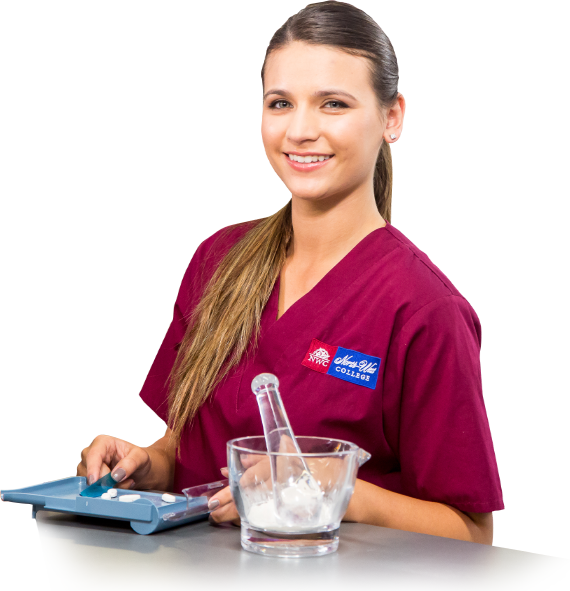Pharmacy Technician
Pharmacy Technicians are trained professionals equipped to take on a number of clerical tasks and responsibilities related to readying and dispensing pharmaceutical drugs.
A growing aging population means a greater demand for prescription medicines. Couple that with the rising rate of chronic diseases such as diabetes and obesity among all age groups and you have a growing need for trained and licensed Pharmacy Technicians as well.
Become a Pharmacy Technician
The Pharmacy Technician program at North-West College offers the education and training necessary to start a career working in a pharmacy, hospital, pharmaceutical lab, and other healthcare facilities. North-West College has campuses throughout Southern California, including Anaheim, Bakersfield, Glendale, Long Beach, Pomona, Riverside, San Diego, Van Nuys and West Covina.
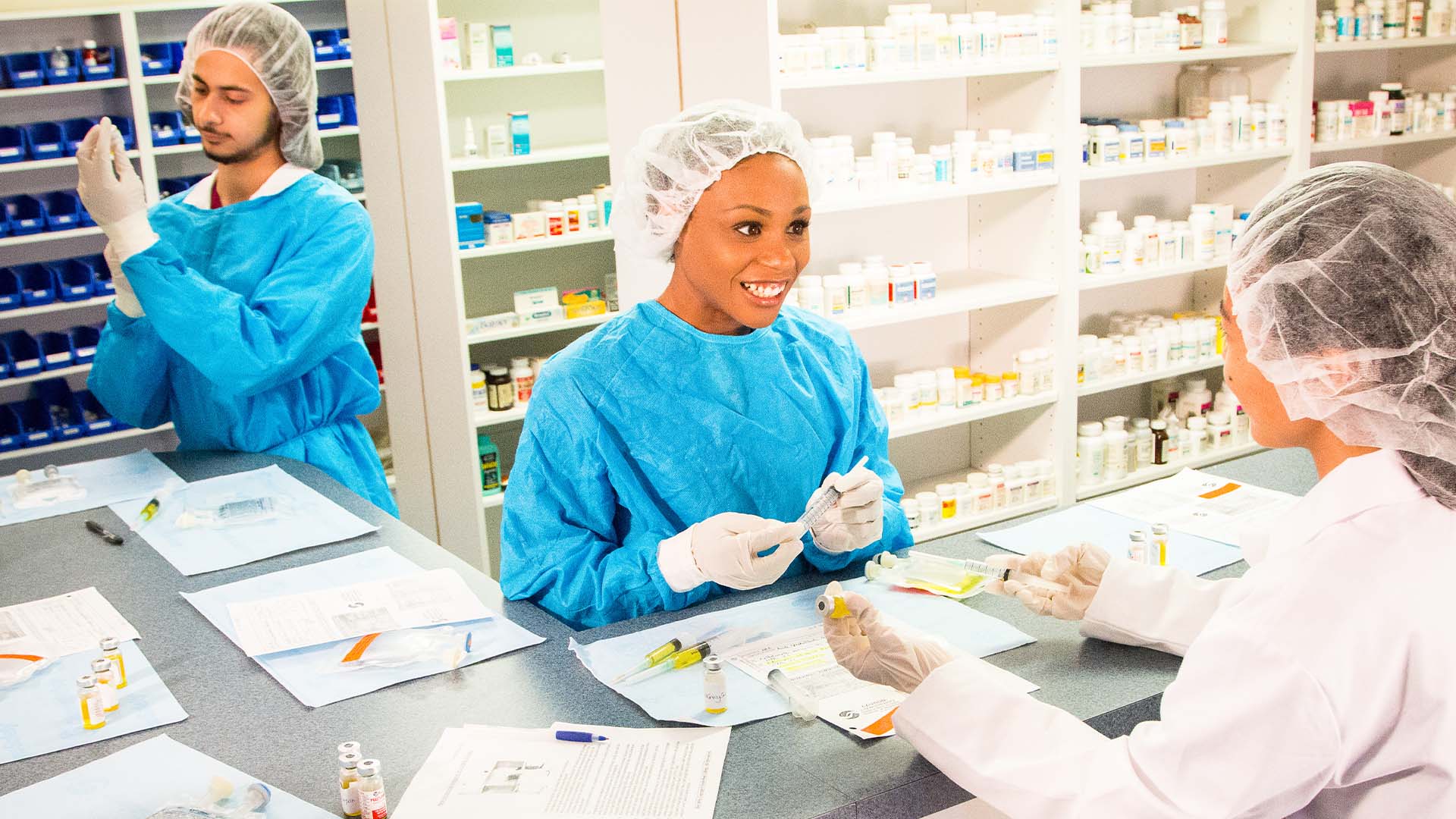
Pharmacy Technician
Pharmacy Technician Overview
The Pharmacy Technician program is available through North-West College.
Pharmacy Technicians are trained professionals equipped to take on a number of tasks and responsibilities related to readying and dispensing pharmaceutical drugs. Pharmacy Technicians are generally involved in all pharmacy tasks except those which require the proficiency of a licensed pharmacist.
Pharmacy technicians work under the supervision of pharmacists, with pharmacists reviewing prescriptions before they can be given to patients. In most states, technicians can compound or mix some medications and contact doctors to receive authorizations for prescription refills. Technicians may also be tasked with using automated dispensing equipment when filling prescription orders.
Pharmacy Technicians often carry out a number of vital responsibilities, including:
The Pharmacy Technician program at North-West College can equip you with the practical skills and knowledge you need.
During the program, you will learn the tasks and responsibilities often carried out by pharmacy technicians in hospitals, retail pharmacies, and pharmaceutical laboratories, including how to do pharmaceutical calculations, process prescriptions, label medicines, handle sterile and non-sterile drug compounding, and dispense over-the-counter pharmaceuticals.
In addition, the program covers medical terminology and pharmacy-related general medicine, along with the laws and regulations over the pharmacy industry, including the FDA and DEA regulations and ethical codes of conduct.
*North-West College is not able to guarantee employment.
Pharmacy Technician
Certification Board (PTCB) Pass Rate
Proudly accredited, licensed to operate and/or recognized by the following institutions: Accredited by ASHP at North-West College in West Covina, Pomona, Van Nuys and Glendale. Accredited by ABHES at North-West College San Diego.



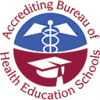
Attend Classes at a California (CA) Campus Near You!
This program is offered at our North-West College campuses in Anaheim, Bakersfield, Glendale, Long Beach, Pomona, Riverside, San Diego, Van Nuys and West Covina.
Other nursing and health care training programs at Glendale Career College with campuses in Bakersfield, San Diego and Glendale, California near Burbank, Los Angeles, Pasadena and Hollywood:
Check out other programs and courses available at Glendale Career College here.
Meet a Graduate
Questions?
Let us help you launch your career by contacting us today. Simply fill out our contact form or call us at 800-639-3384.
Classes are starting soon!
Pharmacy Technician Careers & Work Environment
Pharmacy Technicians work under the supervision of pharmacists, with pharmacists reviewing any prescriptions before they are able to be handed to patients. In most states, technicians can compound or mix some medications and contact doctors for authorizations for prescription refills. Technicians may also be asked to use automated dispensing equipment when filling prescription orders.
Pharmacy technicians and aides work in clean, organized, well-lit, and well-ventilated areas. They are often on their feet for most of their workday and may be asked to lift heavy boxes or use stepladders to get supplies from high shelves. Pharmacy technicians and aides typically have varying schedules that include nights, weekends, and holidays. In 24-hour facilities, such as hospital pharmacies, technicians and aides may be asked to work nights. A number of technicians and aides work part time.
Graduates of the program often find employment at:
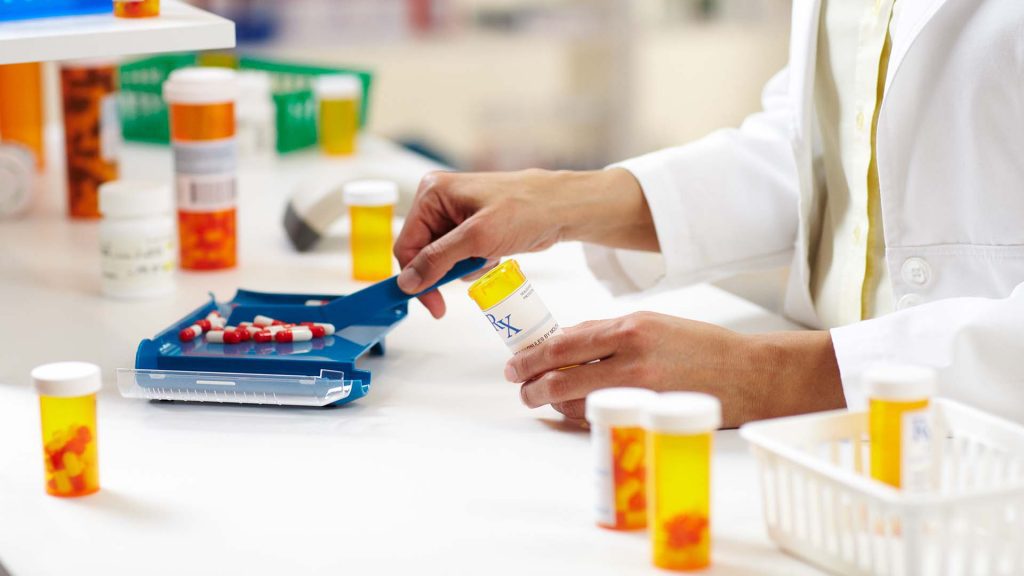
Quick Facts about Pharmacy Technicians*
Pharmacy Technician School Course Material
The Pharmacy Technician training program at North-West College is a practical, career-based program that aims to equip you with the skills required to start a new career working as a Pharmacy Technician. The program is broken down into eight class course modules, along with a 240-hour clinical internship—where students have the chance to put the skills they learned in the classroom into practice in a real health care setting.
Seminar for Success
This course offers career students an orientation and includes tips for succeeding in the program. It includes a review of basic math, language, vocabulary, and writing skills. It also introduces students to core career classes, explains the availability of community resources, and goes over outlining, summarizing, managing credit, and other life skills.
Drug Distribution
In this course, students cover trade/generic drugs, along with a basic review of math. The material also includes the use of electrolytes in the pharmacy, how to use drug dosage forms, and how to compound medicines. In addition, students will learn to use balances, measuring devices, and other pharmacy equipment. Lastly, they will cover how to fill cassettes and the different drug distribution systems (unit dose vs. traditional).
Admixture I
Along with building on their knowledge of trade/generic drugs, and basic math, this course covers the different working conditions and schedules technicians have, along with the variety of tasks technicians must know how to handle. Students will be taught aseptic technique along with an introduction to working with vertical and horizontal flow hoods.
Admixture II
Students will dive into aseptic technique and go over additional responsibilities technicians are tasked with taking on. The course will also cover how to make sterile IV additives, how to administer chemotherapy drugs, and additional material related to working with vertical and horizontal flow hoods.
Pharmacology
This course includes instruction on trade/generic drugs and basic math, along with the Theory of Molecular Combination and basic anatomy. Students will cover where different classes of drugs act on the body and the typical reason and dosage for using that classification of drug. Course material also includes medical terminology and Arabic and Roman numerals.
Retail/Communications
Students will cover the history of the pharmacy, and study effective communication techniques and theories along with different ways of speaking with professionals and patients. Curriculum includes pharmacy law, information related to the Uniform Controlled Substances Act and Drug Schedules, an introduction to the apothecary, and Avoirdupois and Metric Systems. They will also learn how to transcribe doctors’ orders, type pharmacy labels, and price prescriptions. Information related to Third Party, Medi-Cal, and Medicare Insurance Billing for Prescriptions, along with verifying insurance and maintaining accurate pharmacy records will also be presented.
Home Health/Closed Door
Students will cover significant numbers, diabetes drugs and treatment, and Celsius and Fahrenheit temperature conversions. The course also includes the types of durable medical equipment pharmacies supply, drugs and treatment for AIDS, how to configure body surface area, compounding, and hormone replacement therapy.
Career Seminar
This course includes an internship workshop along with career readiness workshops. It also offers a New Student Orientation and CPR Certification.
Clinical Internship
This is the hands-on, practical internship where students have the opportunity to put what they have learned in the classroom into practice in a real health care setting.
Pharmacy Technician Course Activities
As a Pharmacy Technician, your duties may involve: receiving incoming prescriptions, transcribing doctors’ orders, calculating medication doses, using drug distribution systems, preparing IVs, packing up and labeling medications, filling patient cassettes, and interacting with patients. The best part is you can take your career skills with you wherever you go.
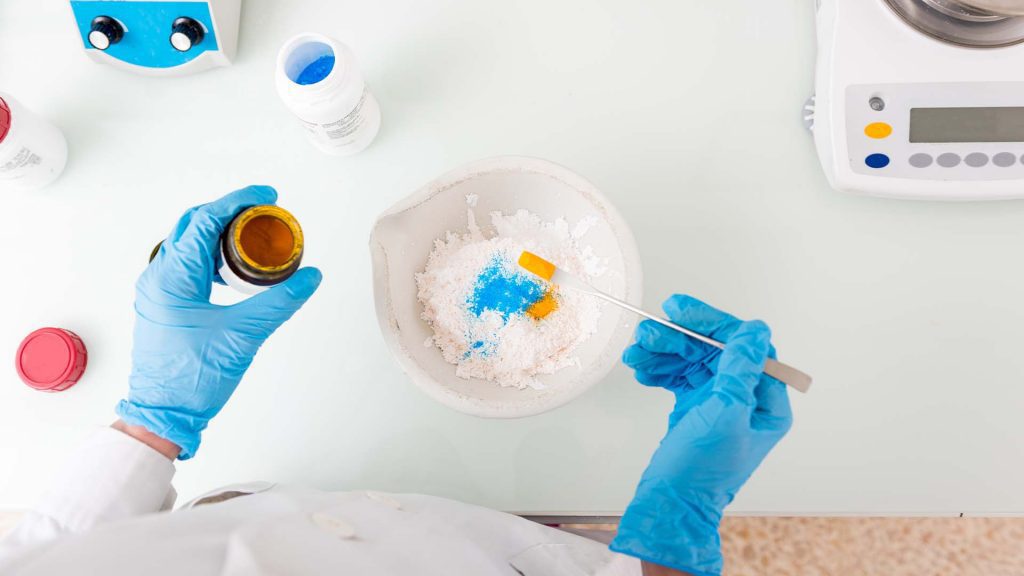
Pharmacy Technicians typically perform the following tasks:
Request Information
Fill out a short form online and one of our admissions representatives will contact you to answer any questions you have.
Apply Online Now!
Ready to make your decision now? You can apply now online in under a few minutes.
Schedule a Tour
Come and see us in person! Talk to your future instructors, meet your future classmates and get familiar with your new home.

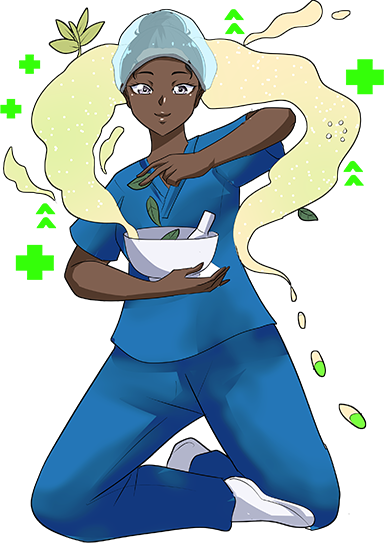
Pharmacy Technician Overview
The Pharmacy Technician program is available through North-West College.
Pharmacy Technicians are trained professionals equipped to take on a number of tasks and responsibilities related to readying and dispensing pharmaceutical drugs. Pharmacy Technicians are generally involved in all pharmacy tasks except those which require the proficiency of a licensed pharmacist.
Pharmacy technicians work under the supervision of pharmacists, with pharmacists reviewing prescriptions before they can be given to patients. In most states, technicians can compound or mix some medications and contact doctors to receive authorizations for prescription refills. Technicians may also be tasked with using automated dispensing equipment when filling prescription orders.
Pharmacy Technicians often carry out a number of vital responsibilities, including:
The Pharmacy Technician program at North-West College can equip you with the practical skills and knowledge you need.
During the program, you will learn the tasks and responsibilities often carried out by pharmacy technicians in hospitals, retail pharmacies, and pharmaceutical laboratories, including how to do pharmaceutical calculations, process prescriptions, label medicines, handle sterile and non-sterile drug compounding, and dispense over-the-counter pharmaceuticals.
In addition, the program covers medical terminology and pharmacy-related general medicine, along with the laws and regulations over the pharmacy industry, including the FDA and DEA regulations and ethical codes of conduct.
*North-West College is not able to guarantee employment.
Pharmacy Technician
Certification Board (PTCB) Pass Rate
Proudly accredited, licensed to operate and/or recognized by the following institutions: Accredited by ASHP at North-West College in West Covina, Pomona, Van Nuys and Glendale. Accredited by ABHES at North-West College San Diego.




Attend Classes at a California (CA) Campus Near You!
This program is offered at our North-West College campuses in Anaheim, Bakersfield, Glendale, Long Beach, Pomona, Riverside, San Diego, Van Nuys and West Covina.
Other nursing and health care training programs at Glendale Career College with campuses in Bakersfield, San Diego and Glendale, California near Burbank, Los Angeles, Pasadena and Hollywood:
Check out other programs and courses available at Glendale Career College here.
Meet a Graduate
Questions?
Let us help you launch your career by contacting us today. Simply fill out our contact form or call us at 800-639-3384.
Classes are starting soon!
Pharmacy Technician Careers & Work Environment
Pharmacy Technicians work under the supervision of pharmacists, with pharmacists reviewing any prescriptions before they are able to be handed to patients. In most states, technicians can compound or mix some medications and contact doctors for authorizations for prescription refills. Technicians may also be asked to use automated dispensing equipment when filling prescription orders.
Pharmacy technicians and aides work in clean, organized, well-lit, and well-ventilated areas. They are often on their feet for most of their workday and may be asked to lift heavy boxes or use stepladders to get supplies from high shelves. Pharmacy technicians and aides typically have varying schedules that include nights, weekends, and holidays. In 24-hour facilities, such as hospital pharmacies, technicians and aides may be asked to work nights. A number of technicians and aides work part time.
Graduates of the program often find employment at:

Quick Facts about Pharmacy Technicians*
Pharmacy Technician School Course Material
The Pharmacy Technician training program at North-West College is a practical, career-based program that aims to equip you with the skills required to start a new career working as a Pharmacy Technician. The program is broken down into eight class course modules, along with a 240-hour clinical internship—where students have the chance to put the skills they learned in the classroom into practice in a real health care setting.
Seminar for Success
This course offers career students an orientation and includes tips for succeeding in the program. It includes a review of basic math, language, vocabulary, and writing skills. It also introduces students to core career classes, explains the availability of community resources, and goes over outlining, summarizing, managing credit, and other life skills.
Drug Distribution
In this course, students cover trade/generic drugs, along with a basic review of math. The material also includes the use of electrolytes in the pharmacy, how to use drug dosage forms, and how to compound medicines. In addition, students will learn to use balances, measuring devices, and other pharmacy equipment. Lastly, they will cover how to fill cassettes and the different drug distribution systems (unit dose vs. traditional).
Admixture I
Along with building on their knowledge of trade/generic drugs, and basic math, this course covers the different working conditions and schedules technicians have, along with the variety of tasks technicians must know how to handle. Students will be taught aseptic technique along with an introduction to working with vertical and horizontal flow hoods.
Admixture II
Students will dive into aseptic technique and go over additional responsibilities technicians are tasked with taking on. The course will also cover how to make sterile IV additives, how to administer chemotherapy drugs, and additional material related to working with vertical and horizontal flow hoods.
Pharmacology
This course includes instruction on trade/generic drugs and basic math, along with the Theory of Molecular Combination and basic anatomy. Students will cover where different classes of drugs act on the body and the typical reason and dosage for using that classification of drug. Course material also includes medical terminology and Arabic and Roman numerals.
Retail/Communications
Students will cover the history of the pharmacy, and study effective communication techniques and theories along with different ways of speaking with professionals and patients. Curriculum includes pharmacy law, information related to the Uniform Controlled Substances Act and Drug Schedules, an introduction to the apothecary, and Avoirdupois and Metric Systems. They will also learn how to transcribe doctors’ orders, type pharmacy labels, and price prescriptions. Information related to Third Party, Medi-Cal, and Medicare Insurance Billing for Prescriptions, along with verifying insurance and maintaining accurate pharmacy records will also be presented.
Home Health/Closed Door
Students will cover significant numbers, diabetes drugs and treatment, and Celsius and Fahrenheit temperature conversions. The course also includes the types of durable medical equipment pharmacies supply, drugs and treatment for AIDS, how to configure body surface area, compounding, and hormone replacement therapy.
Career Seminar
This course includes an internship workshop along with career readiness workshops. It also offers a New Student Orientation and CPR Certification.
Clinical Internship
This is the hands-on, practical internship where students have the opportunity to put what they have learned in the classroom into practice in a real health care setting.
Pharmacy Technician Course Activities
As a Pharmacy Technician, your duties may involve: receiving incoming prescriptions, transcribing doctors’ orders, calculating medication doses, using drug distribution systems, preparing IVs, packing up and labeling medications, filling patient cassettes, and interacting with patients. The best part is you can take your career skills with you wherever you go.

